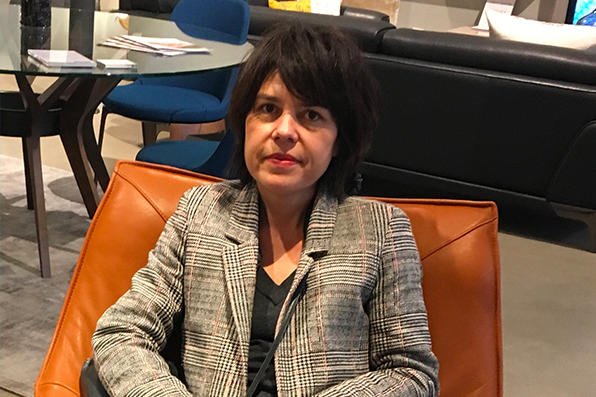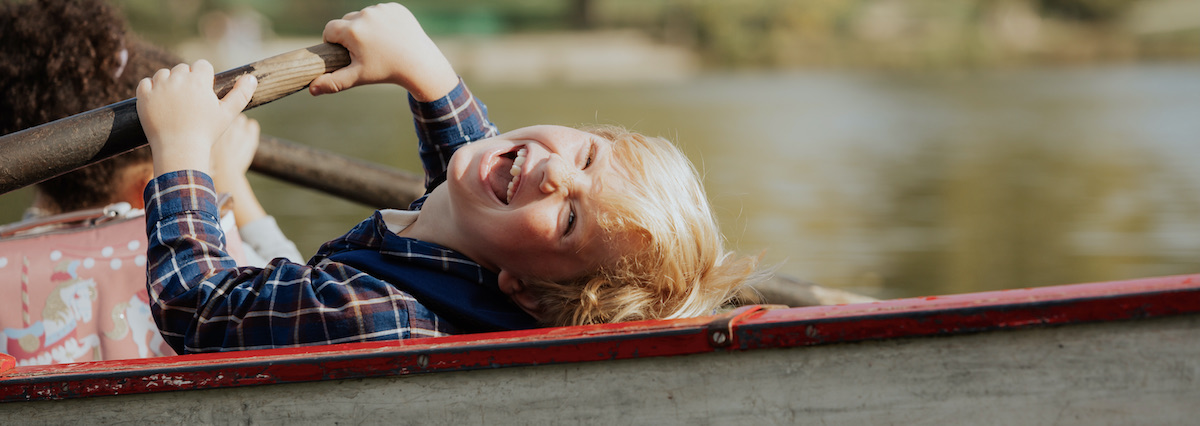Always concerned about the well-being of our children, I thought I would give you a few keys to help your children pass more serenely through these strange and difficult times, emotionally, far from school, friends and work. This is the modest contribution of the Caramel & Cie teams.
The COVID-19, an over-mediatized event that disrupts life, the routine of all children and their parents can generate anxiety in each one of us, as at the time of September 11, 2001, the attacks of Charlie and Bataclan, ... I therefore called upon Agnès Bailly, psychoanalyst and psychologist specialized in the follow-up of children, to have her opinion on how to approach the subject of COVID-19 with our children.
I hope you will appreciate this little article that I personally like very much because it goes a little further than just giving advice!
Rafaela Garcia (Founder of Caramel & Cie)
Partner with children's issues
"How do you explain Covid-19 to children? "I was asked. I would turn it around like this: How to welcome their unique and personal questions, at the time of their own choosing...
Wanting to explain things with a " ready-made " knowledge may not suit your child and may block his question, prevent him from expressing his concerns to you. No doubt he has something to say.
Children's books can help parents when dealing with a sensitive subject, as long as they remain open to the unexpected question that the child is going to ask. Be attentive enough (and you can't be attentive all the time) to take their word for what they are going to say, when you least expect it and when you are least available. Yet this is where they will ask you their question, which may seem insignificant to you or totally out of step with what is going on.
A 5-year-old boy I was seeing at the very beginning of the outbreak said to me:
- "I'm afraid I'll miss my father's birthday tonight... I have a cold. "
- I said, "Have you heard anything on the radio? »
- "I'm afraid of the virus... it's deadly, you know."
Reassuring him with a scientific speech would not have allowed him to address his question to me afterwards.
- Me: "Do you ever wonder about death? »
- "Yes! Since I was three years old. »
- Me: "Something bad must have happened then? »
- "Yes, but I forgot..."
I stepped forward carefully:
- I said, "You've heard about the bombings? »
- "Yes! That's what I forgot! " he said with a real relief.
Since then, he has come to talk to me about his questions about death with greater freedom and his findings on how to "deal with it".
If this little boy can name what he's going through, not everyone can. Since every child is more or less caught up in his parents' anxieties, it is not easy for them to hear his concerns. There is no good way to answer children's questions. The important thing is rather to remain as open as we can to their questions and to make ourselves partners with them: to answer them with our flaws and our own questioning, that is to say in a way that is not anonymous. This is much more important to them than ready-made knowledge.
Agnès Bailly, psychologist psychoanalyst,
member of the École de la Cause freudienne, 75010 Paris.




Published the 03/24/2020
Listening to children in the time of COVID-19


Always concerned about the well-being of our children, I thought I would give you a few keys to help your children pass more serenely through these strange and difficult times, emotionally, far from school, friends and work. This is the modest contribution of the Caramel & Cie teams.
The COVID-19, an over-mediatized event that disrupts life, the routine of all children and their parents can generate anxiety in each one of us, as at the time of September 11, 2001, the attacks of Charlie and Bataclan, ... I therefore called upon Agnès Bailly, psychoanalyst and psychologist specialized in the follow-up of children, to have her opinion on how to approach the subject of COVID-19 with our children.
I hope you will appreciate this little article that I personally like very much because it goes a little further than just giving advice!
Rafaela Garcia (Founder of Caramel & Cie)
Partner with children's issues
"How do you explain Covid-19 to children? "I was asked. I would turn it around like this: How to welcome their unique and personal questions, at the time of their own choosing...
Wanting to explain things with a " ready-made " knowledge may not suit your child and may block his question, prevent him from expressing his concerns to you. No doubt he has something to say.
Children's books can help parents when dealing with a sensitive subject, as long as they remain open to the unexpected question that the child is going to ask. Be attentive enough (and you can't be attentive all the time) to take their word for what they are going to say, when you least expect it and when you are least available. Yet this is where they will ask you their question, which may seem insignificant to you or totally out of step with what is going on.
A 5-year-old boy I was seeing at the very beginning of the outbreak said to me:
- "I'm afraid I'll miss my father's birthday tonight... I have a cold. "
- I said, "Have you heard anything on the radio? »
- "I'm afraid of the virus... it's deadly, you know."
Reassuring him with a scientific speech would not have allowed him to address his question to me afterwards.
- Me: "Do you ever wonder about death? »
- "Yes! Since I was three years old. »
- Me: "Something bad must have happened then? »
- "Yes, but I forgot..."
I stepped forward carefully:
- I said, "You've heard about the bombings? »
- "Yes! That's what I forgot! " he said with a real relief.
Since then, he has come to talk to me about his questions about death with greater freedom and his findings on how to "deal with it".
If this little boy can name what he's going through, not everyone can. Since every child is more or less caught up in his parents' anxieties, it is not easy for them to hear his concerns. There is no good way to answer children's questions. The important thing is rather to remain as open as we can to their questions and to make ourselves partners with them: to answer them with our flaws and our own questioning, that is to say in a way that is not anonymous. This is much more important to them than ready-made knowledge.
Agnès Bailly, psychologist psychoanalyst,
member of the École de la Cause freudienne, 75010 Paris.
Click here to give your testimonial and give your opinion